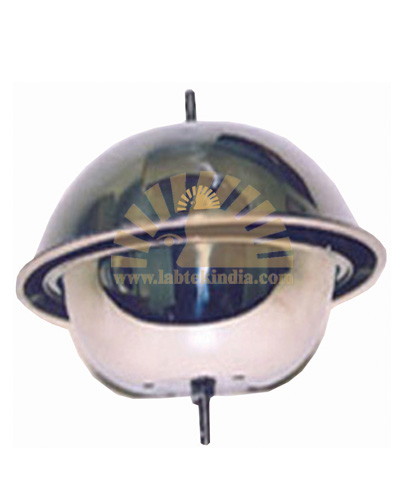- +91-9971077233, +91-9821041467
- labequipments.in@gmail.com
- ENG

Principle Of Method
Low sensitivity to accidental short-time changes in the concentration of pollutants is a basic characteristic of passive
samplers. They provide information about the long-term contamination of the studied environmental compartment (for
example air). The air streams freely around a filter, membrane or other medium (sorbent), which captures pollutants
during the period of passive air sampling. It is possible to use polyurethane foam (PUF) for persistent organic pollutant
(POPs) sampling.
The relationship between the amount of POPs captured on PUF filter and their concentrations in sampled air has not
been mathematically fully described yet. Due to this reason only empirical estimated information (for example based on
parallel active and passive measurements) is available for results interpretation. Passive air sampling is a cheap screening
method for a comparison of contamination on various sites or for verification of information obtained by active
samplers.
Material
Sampler (description, maintenance)
Passive air sampler consists of two stainless steel bowls with diameter 30 and 24 cm positioned on the common axis,
which also fixes PUF filter in the proper position. All parts of the sampler are made from the stainless steel.